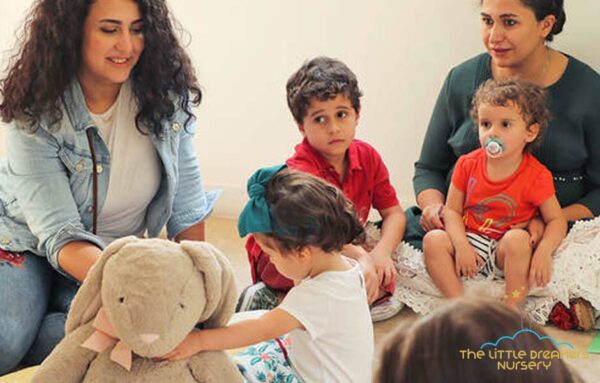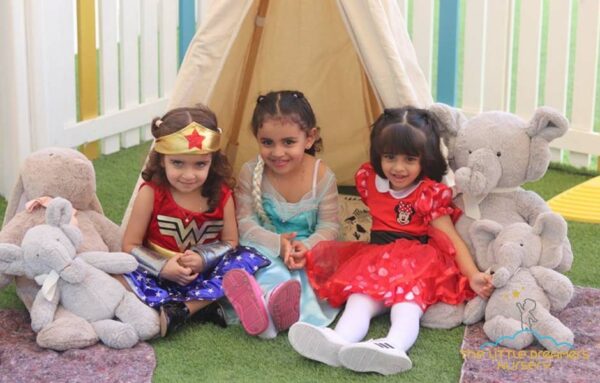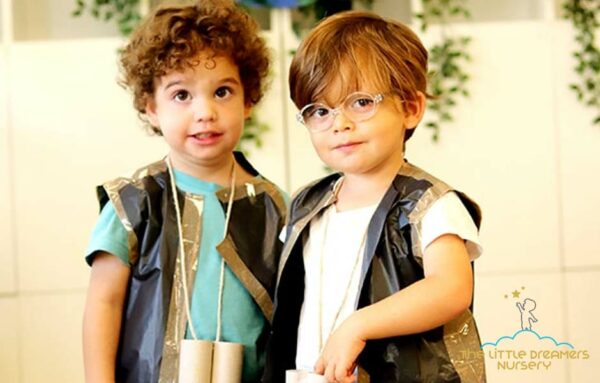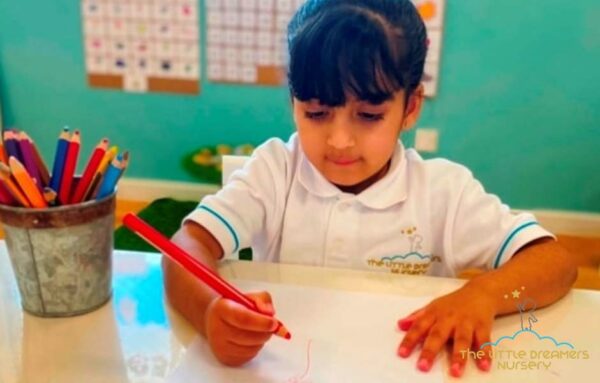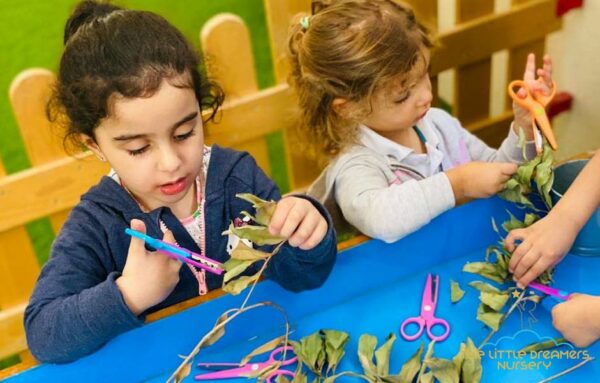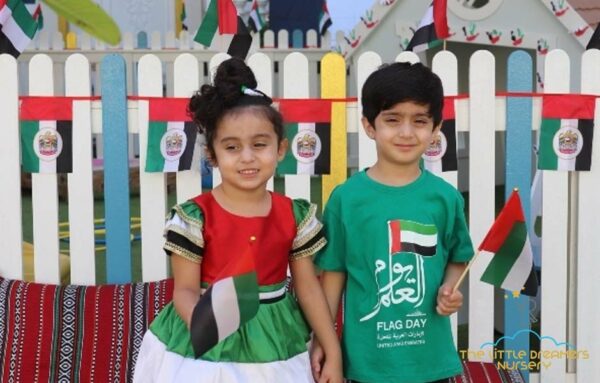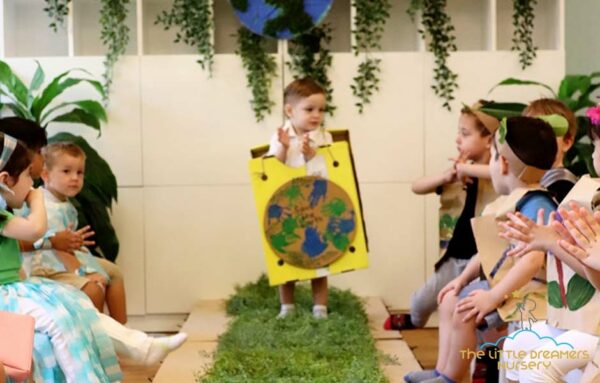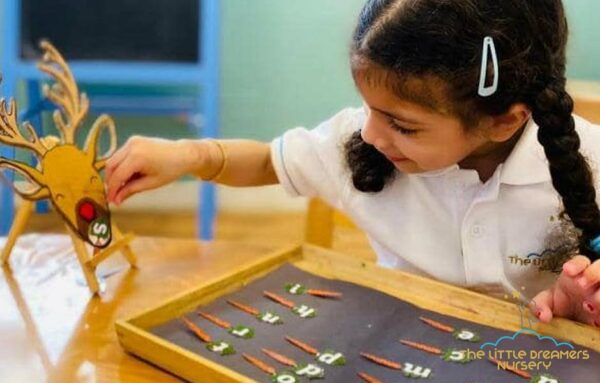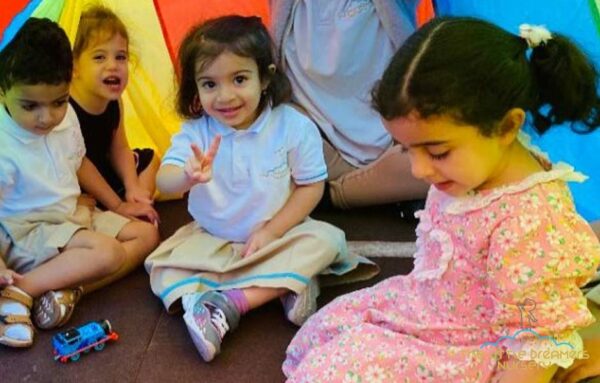What is child development?
The development of a child proceeds via distinct phases. There is a consistent pattern of Child Development Skills. Some children may go through a developmental stage more quickly than others. There are checkpoints at each stage of development. This is why many professionals refer to them as “growth milestones.” Let’s take a look at the areas of child development.
Speech and Language Development
A newborn has no preexisting linguistic knowledge. But as he or she observes how others reply verbally, his or her grasp of the language improves. Learning how to talk is a process that often takes time. A newborn will begin to respond to spoken language early on; such as making gestures or babbling. Over time, he or she develops the ability to articulate their wants and requirements through the use of language. That is the very beginning of language acquisition. When a child reaches the age of one, they begin to acquire the ability to communicate through the use of words. Object names, pronouns, etc., are all things they pick up in the following year. Then, naturally, linguistic abilities will develop with age.
What do children learn in nursery
Cognitive Child Development Skills
The ability to think, reason and grasp concepts are what we mean when talking about the cognitive domain of Child Development Skills. Cognitive childhood development can be broken down into four separate phases, as defined by developmental psychologist Jean Piaget. From the day of birth to about two years of age, people are in the sensorimotor stage of cognitive development, during which they can only perceive the world through their senses. The child starts to discover the difference between themselves and their environment. By the time a child is between the ages of two and six, they begin to use language in their observations of the world around them.
Social and Emotional Development
One of the most beneficial and valuable skills a person can acquire is the capacity to understand, and use language. Phonology is considered the study of how sounds are combined to produce words; Syntax is the study of how used words are put together in sentences; Semantics is the study of meaning and nuances of meaning; and Pragmatics is the study of how speakers interact with one another. Individual differences exist in the timing of the development of verbal communication skills; however, many two-year-olds are already capable of at least telegraphic speech, wherein short sentences convey the substance of a demand or need.
Fine Motor Skill Child Development Skills
Child Development Skills and human movement development are linked to the maturation of neural and muscular tissue. Muscles contract and relax to enable even the most fundamental of life’s actions. This requires the maturation of the infant’s muscular structure, so that appropriate movements may be made. As a result of the strain fixed on the skeleton when grasping or carrying heavy objects, bone density must increase. Even the most basic types of movements require a great deal of muscle effort.

Gross Motor Skill Development
As a child develops, they go through many stages of movement. These are the major developments, such as sitting up, standing up, walking, and running. The body’s muscles must be sufficiently strong and healthy at each developmental stage. For example, once an infant has been sitting for a while, they will soon realize that their legs are strong enough the stand up, with the help of activities and games.
Change, growth, and regression occur simultaneously across many areas of Child Development Skills. Children always experience some degree of change in all areas of development. By gaining awareness and showing your support for your child in each area, this will benefit their development.
Read more about Child Development skills:
Bad habits for children Bad habits for children are repeated or habitual negative behaviors that are socially unacceptable or inappropriate. It is important for children to outgrow bad habits in order to develop a socially acceptable demeanor. There are some bad habits that may require monitoring because they may indicate an underlying issue, such as…
Do you know what things to ask your child instead of how was your day? We used to fall into this age-old parenting trap every evening at the dinner table. How did your day go?” “I’m fine.” Tell me what you learned today.” “Nothing.” Who played with you at recess?” “No one.” We can’t connect…
What is inclusion in early childhood education? As part of inclusion in early childhood, children with disabilities are educated and cared for in the same environment as their typically developing peers. The daily activities and routines of children with and without disabilities are the same in an inclusive program. Children with disabilities are more likely…
Useful tips about friendship in child development How Do Children Make Friends? | What age do children establish friendships? The majority of children do activities with other children by the age of three, for example, at child care or kindergarten. Some children can name their friends at this age and know who their friends…
Good Habits for Children The best way for children to learn good habits in children is to observe their parents. Parents should model particular behaviour if they want healthy habits for their children. In order for children to emulate good habits, you must practice what you preach. It is never too early to teach good habits…
Every child’s motor skills progress at their own pace. We have various activities to improve fine motor skills. Children who struggle with fine motor skills may have difficulty doing tasks such as gripping utensils, manipulating things with their fingertips, utilizing instruments such as scissors and even tying a pair of shoe laces. Try these entertaining…
Here is a list of the best places for things to do with your children in Dubai. LEGOLAND DUBAI If you are looking for Dubai attractions, your first choice might be LEGOLAND Dubai and LEGOLAND Water Park. It’s the ultimate theme park for children ages 2-12 in the Middle East. With interactive rides, water slides, models,…
Suitable interactive games for toddlers can develop their cognitive, physical and emotional skills. The main question is, what are the best interactive games for toddlers? Many games are not beneficial for toddlers and shouldn’t be considered toddler learning games. Therefore, every parent should be familiar with toddler learning games that are good for them. You…
Early childhood education in Dubai is the upbringing between birth and the age of eight. Scientists believe this is a pivotal time in children’s lives as they first learn to interact with others, including peers, teachers and parents. They should also begin to develop interests that will accompany them throughout their lives. Despite the common…
Young children learn fundamental skills which are necessary to participate in society through various group activities for children at The Little Dreamers Nursery. Games, dancing, outdoor recreation, and sports are all dependent on learning these skills. The program helps them to develop their creativity, communication, language, and physical skills. In order to create the ideal…



